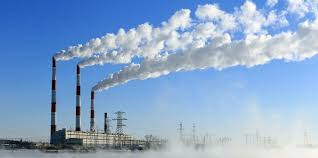
India is among seven countries that does not share air pollution data in a fully transparent manner despite it being termed as “the greatest environmental risk to health” by the World Health Organization (WHO).
Daily Current Affairs Quiz 2020
Key-Points
The outdoor air pollution leads to an estimated 4.2 million deaths every year worldwide; more than Ebola, HIV/AIDS, tuberculosis and malaria combined (2.7 million).
This information vacuum is preventing people from demanding action from their governments to tackle the biggest environmental risk to health, and changing their behaviour.
Over half of the world’s population has no access to official government data on air quality, despite the fact that nine out of 10 people breathe air containing high levels of pollutants, according to WHO.
The research supported by scientists at NASA, examined 212 countries using the Open AQ system and revealed a huge global inequality in access to information about air quality.
The 13 most populous countries (4.2 billion) with populations exceeding 50 million, each, produce real-time air quality data in some format, but not in a fully open manner on a national-level.
Clean air is a basic right, yet air pollution causes one in every eight deaths across the planet. It is clear that governments need to urgently prioritize air pollution action, and providing open data is a key first step.





